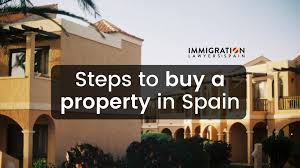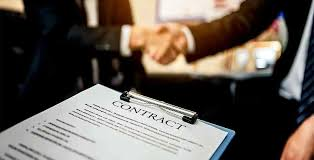Now Reading: Foreigners Can Easily Buy Property in Spain—Here’s How Now 2025
-
01
Foreigners Can Easily Buy Property in Spain—Here’s How Now 2025
Foreigners Can Easily Buy Property in Spain—Here’s How Now 2025

Spain has long been a favorite destination for international travelers, retirees, and investors. With its sunny climate, rich culture, and affordable cost of living, it’s easy to see why so many people dream of owning a home there. But what if you’re not a Spanish citizen? Can foreigners buy property in Spain? The short answer is: yes, absolutely!
This article will guide you through the steps, rules, and tips for buying property in Spain as a foreign national, whether you’re looking for a vacation home, rental investment, or a permanent place to live.
Can Foreigners Buy Property in Spain?
Yes. Spain places no restrictions on foreigners buying property—whether you’re from within the European Union or outside it. Foreigners can purchase residential, commercial, and even agricultural property. You don’t need to be a resident or citizen of Spain to buy real estate, which makes the process straightforward for many international buyers.
In fact, foreign buyers make up a large part of the Spanish property market. According to recent government data, over 10% of all property transactions in Spain involve foreign nationals.
Why Buy Property in Spain?

Here are some of the biggest reasons foreigners are buying property in Spain:
- Sun and Sea: Spain offers a mild climate and over 3,000 hours of sunshine per year.
- Affordable Prices: Compared to other Western European countries, property prices in Spain are quite reasonable.
- Golden Visa Opportunity: Investing €500,000 or more in property may qualify you for a Spanish residency visa.
- Rental Income: Tourist destinations like Barcelona, Marbella, and Valencia offer strong short-term rental potential.
- Quality of Life: Delicious food, relaxed lifestyle, and excellent healthcare are just some of the perks.
Step-by-Step Guide: How to Buy Property in Spain as a Foreigner

1. Get a Spanish NIE Number
The NIE (Número de Identificación de Extranjero) is a foreigner identification number required for any legal or financial activity in Spain. You must have it to buy property, open a bank account, pay taxes, and sign contracts.
You can apply for your NIE at a local Spanish police station or Spanish consulate in your home country.
2. Open a Spanish Bank Account
You’ll need a local account to handle property payments, taxes, and utility bills. Most major Spanish banks offer services in English and are used to dealing with international clients.
3. Find a Reliable Real Estate Agent
Look for an English-speaking agent who specializes in helping foreign buyers. An experienced agent can assist with the search, negotiation, and paperwork—saving you time and costly mistakes.
Some popular regions for expats include:
- Costa del Sol
- Alicante
- Barcelona
- Mallorca
- Valencia
4. Hire an Independent Lawyer
A real estate lawyer will help review contracts, ensure legal compliance, and protect your interests. Make sure the lawyer is independent and not affiliated with the seller or agent.
5. Make an Offer and Sign a Reservation Contract

Once you find the right property, you can make an offer. If accepted, a reservation contract (contrato de reserva) is signed, and you typically pay a reservation fee of €3,000–€6,000 to take the property off the market.
6. Conduct Due Diligence
Your lawyer should check that the property is legally registered, free of debts or encumbrances, and that all permits are in order. This step is vital to avoid surprises.
7. Sign the Purchase Contract and Pay the Deposit
The next step is signing the private purchase contract (contrato de compraventa) and paying a 10% deposit. This contract outlines all terms of the sale.
8. Final Signing at the Notary
The sale is officially completed at a public notary, where both parties sign the deed of sale (escritura de compraventa). The rest of the payment is made, and the buyer becomes the legal owner.
Costs and Taxes When Buying Property in Spain
Buyers should expect to pay 10–15% in additional costs on top of the purchase price. Here’s a breakdown:
- Transfer Tax (6–10%) for resale properties
- VAT (IVA) (10%) for new builds
- Notary and Land Registry Fees (1–2%)
- Legal Fees (1–2%)
- Bank Fees and Mortgage Costs (if applicable)
Always budget for these extras when calculating your total investment.
Can You Get a Mortgage in Spain as a Foreigner?
Yes, non-residents can apply for a Spanish mortgage. However, banks usually offer lower loan-to-value ratios, typically around 60–70% of the property’s value. You’ll need to provide proof of income, tax returns, and other financial documents.
What About Residency and Visas?
Buying property alone does not give you automatic residency in Spain. However, if you invest €500,000 or more, you may qualify for a Spanish Golden Visa. This visa allows non-EU citizens to live in Spain, travel throughout the Schengen area, and even bring family members.
The Golden Visa is valid for two years and can be renewed every five years as long as the investment is maintained.
Final Tips for Foreign Buyers
- Do not skip legal advice. Spanish property laws can be complex.
- Beware of illegal properties. Some rural homes or coastal houses were built without permits.
- Visit the property in person. Pictures can be deceiving.
- Check rental laws if you plan to rent your home on Airbnb or Booking.com, as some regions have strict rules.
Conclusion
Buying property in Spain as a foreign national is not only legal—it’s also a smart lifestyle and investment choice for many. With the right guidance, planning, and legal support, you can enjoy the dream of owning a beautiful home in one of Europe’s most welcoming countries.
Whether you’re seeking sunshine, profit, or a peaceful retirement, Spain offers a warm and open door to foreign property buyers.
Read More:- Shobha Realty Launches Its Most Luxurious Project Yet—Full Details Inside 2025






















